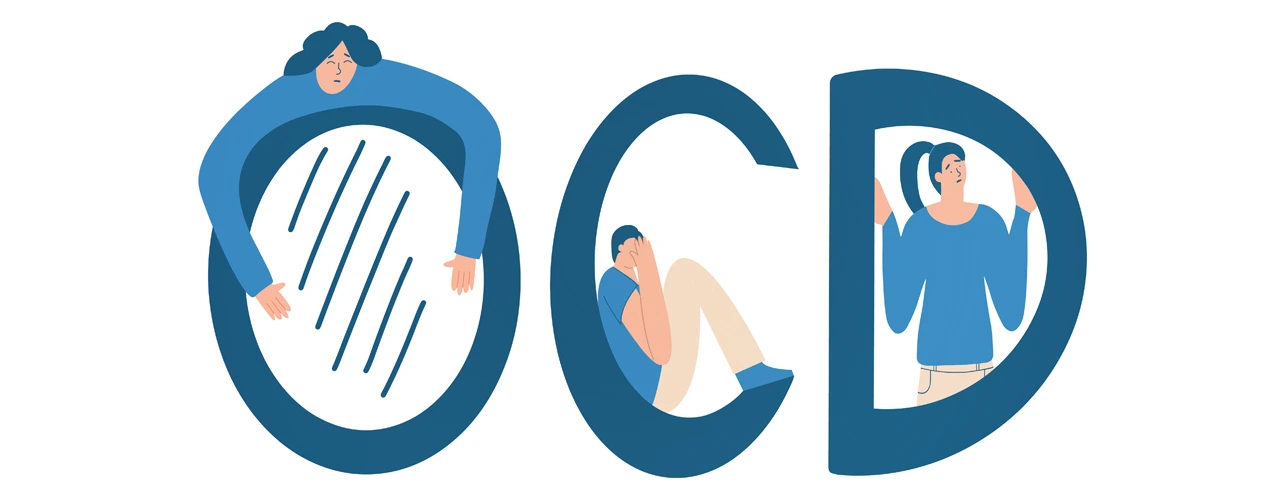You’re educated. You’re competent. You have a solid work ethic. Then why do you find yourself wondering, Why can’t I stay organized? Why can’t I get it together? Why does work feel harder than it should?
If you’ve ever found yourself struggling to stay focused during meetings, constantly misplacing items, or procrastinating on important tasks despite your best intentions, you have probably wondered if you have ADHD.
While attention-deficit/hyperactivity disorder (ADHD) is often discovered in school children, many professionals only discover they have ADHD later in life, after years of frustration. Understanding ADHD in adults can be life-changing—especially when paired with the right executive function strategies.
What Is ADHD in Adults?
ADHD in adults is a neurodevelopmental condition that affects focus, organization, and impulse control. It’s not about intelligence or motivation—it’s about how the brain manages attention and self-regulation. Adults with ADHD often describe their minds as “always on,” full of thoughts but hard to control or direct.
Unlike in children, adult ADHD symptoms can be subtle. Many professionals appear high-achieving yet feel internally overwhelmed, distracted, or exhausted from constantly compensating. Additionally, ADHD affects memory, making it challenging for individuals to retain details, follow through on tasks, or recall information efficiently.
Common ADHD Symptoms in Adults
The symptoms of ADHD in adults can look different from what most people expect. Instead of hyperactivity, many adults experience internal restlessness or chronic mental clutter.
Common Signs Include:
- Difficulty staying focused on tasks or conversations.
- Frequently misplacing items (keys, phone, wallet).
- Struggling to start or complete projects.
- Chronic procrastination, even for simple tasks.
- Forgetting appointments or deadlines.
- Feeling easily distracted, even by small interruptions.
- Trouble prioritizing or managing time.
- Feeling restless, impatient, or “on edge”.
- Emotional sensitivity or frustration with oneself.
These ADHD symptoms in adults can interfere with work, relationships, and self-esteem—but they are treatable once recognized. Learning how to focus with ADHD through structured routines, mindfulness, and time management strategies can significantly improve daily functioning and productivity.
Types of ADHD in Adults
ADHD isn’t one-size-fits-all. The types of ADHD in adults generally fall into three categories, based on the primary symptoms:
1. Inattentive Type:
Trouble sustaining attention, following through on tasks, or staying organized. Often mislabeled as “lazy” or “scatterbrained.”
2. Hyperactive-Impulsive Type:
More physical restlessness, impulsivity, and difficulty sitting still or waiting turns.
3. Combined Type:
A mix of inattentive and hyperactive-impulsive symptoms—the most common type in adults.
Understanding your specific type helps guide more effective strategies and treatment options.
Executive Function and ADHD: Why It Matters for Professionals
ADHD affects the brain’s executive functions—the mental skills that help us plan, organize, prioritize, and manage time. For busy professionals, executive function challenges can show up in subtle yet frustrating ways:
- Missing deadlines despite good intentions
- Working long hours but achieving little focus
- Feeling overwhelmed by decisions or shifting priorities
- Struggling with follow-through or procrastination
- Constantly switching between tasks without finishing any
Understanding that these struggles are neurological—not character flaws—can be empowering. With targeted strategies, you can build systems that work with your ADHD brain instead of against it.
Executive Function Strategies for Adults with ADHD
Here are some practical, research-backed strategies to help manage ADHD and improve daily productivity:
1. Externalize Your Memory
Don’t rely on willpower or recall. Use visual tools like whiteboards, planners, or digital task apps. Writing things down helps reduce cognitive load and prevents overwhelm.
2. Break Tasks into Micro-Steps
Large projects can feel paralyzing. Break them into small, actionable steps—like “open document” or “draft outline.” Success with micro-tasks builds momentum and combats procrastination.
3. Use Time Blocking
Schedule specific blocks for focused work, breaks, and admin tasks. Tools like Google Calendar or Pomodoro timers can keep you accountable.
4. Create an ADHD-Friendly Environment
Minimize distractions by using noise-canceling headphones, turning off notifications, or working in quieter spaces. Environmental structure supports mental clarity.
5. Prioritize Rest and Movement
Regular physical activity, mindfulness, and adequate sleep improve focus and reduce impulsivity. Think of exercise as brain maintenance, not just fitness.
6. Seek Accountability
Partnering with a therapist, coach, or accountability buddy helps you stay on track and reflect on progress. Support makes sustainable change more achievable.
When to Seek Professional Help
If your ADHD symptoms are affecting your job performance, relationships, or emotional well-being, it’s worth reaching out for a professional assessment. Individual psychotherapy or ADHD-focused counselling can help you develop personalized coping strategies, strengthen executive function, and manage emotional regulation.
Professionals who specialize in ADHD in adults—especially those familiar with high-performance work environments—can provide tools tailored to your lifestyle and goals.
Living Successfully with Adult ADHD
ADHD doesn’t have to hold you back. Many adults with ADHD are creative, driven, and highly capable once they understand how their brains work. Learning to manage executive function challenges allows you to channel your focus and energy more effectively.
If you’re a busy professional feeling stuck in cycles of stress, procrastination, or overwhelm, consider taking the first step—getting assessed and exploring treatment options. With the right tools, routines, and support, thriving with ADHD is entirely possible.
Frequently asked questions
What is executive function, and why is it affected in adults with ADHD?
Executive function includes planning, organizing, and time management. In adults with ADHD, neurological differences affect these skills, making task prioritization, focus, and self-regulation more difficult.
What are common executive function difficulties for busy professionals with ADHD?
Professionals with ADHD often miss deadlines, feel mentally cluttered, struggle with task follow-through, shift focus rapidly, and work long hours with minimal sustained productivity or results.
How can busy professionals build better habits and routines?
Develop consistent morning and evening routines, use structured schedules with planned breaks, and maintain focus through realistic, organized systems designed for ADHD-friendly productivity.
What lifestyle adjustments can relieve executive function difficulties?
Regular movement, mindfulness, adequate sleep, and balanced nutrition improve focus, mood, and energy—helping adults with ADHD sustain attention and reduce impulsivity throughout the day.
Who can help with ongoing executive function issues?
ADHD-trained therapists, coaches, and mental-health professionals offer tailored strategies, accountability, and tools to help adults manage focus, organization, and emotional regulation effectively.












































